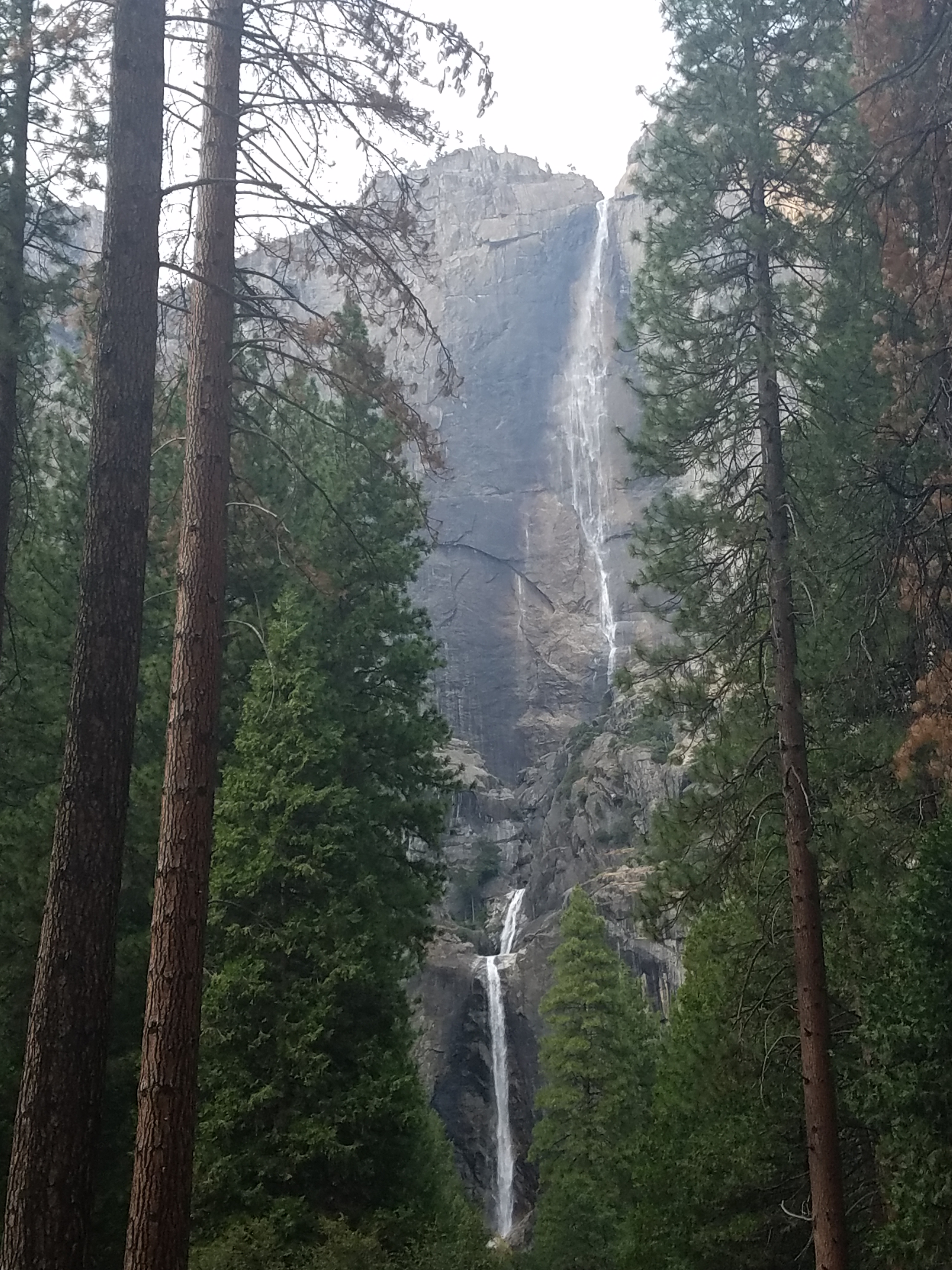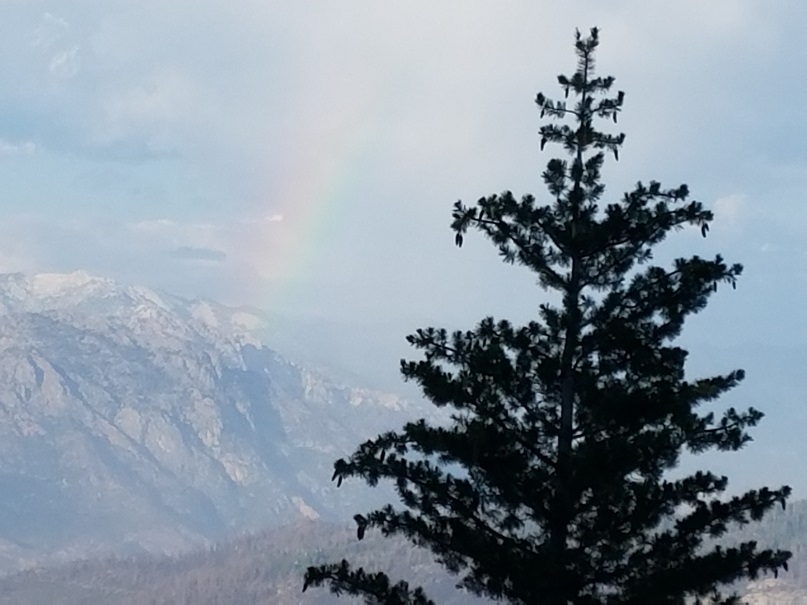I’ve spent a lot of verbiage on the Vietnam War over my years of blogging. All you have to do is look at the category “Vietnam” on the right sidebar, and you’ll see that the number of posts on the subject is 84 (soon to be 85 when this one goes up). If you want to see the gist of what I have to say about that war, just start reading there.
But I’m going to add my reaction to this recent comment from “Ariel.” Here’s Ariel, who first quotes “Irv” and then reacts to that quote:
“The lesson that we should learn from the failed wars in Vietnam, Iraq and Afghanistan is not that we shouldn’t engage in nation building, it’s that when we win a war we should not turn it over to the Democrats to change victory into defeat.” ”“ Irv
Seems to me that Vietnam is not like the others in this statement, given its timeline of dem leadership ”“ from the Start!”
I had no idea Eisenhower was a Democrat. In fact, Eisenhower the Democrat coined the phrase ”˜Domino effect’ specifically about Vietnam. He also warned about the ”˜Industrial-Military’ complex as a threat to democracy around 1961. Damn, friggin’ bleeding-heart liberal Democrat.
We weren’t in Vietnam until that friggin’ Democrat tried to make up for a French failure to recognize an opportunity.
There is no question that Eisenhower was indeed involved in the ongoing conflict in Vietnam during the 1950s. You can read about the reasons and the decisions he made here:
The outbreak of the Korean War in June 1950 convinced many Washington policymakers that the war in Indochina was an example of communist expansionism directed by the Soviet Union.
Military advisors from the People’s Republic of China (PRC) began assisting the Viet Minh in July 1950. PRC weapons, expertise, and laborers transformed the Viet Minh from a guerrilla force into a regular army. In September 1950, the United States created a Military Assistance and Advisory Group (MAAG) to screen French requests for aid, advise on strategy, and train Vietnamese soldiers. By 1954, the United States had supplied 300,000 small arms and spent US$1 billion in support of the French military effort (during the early 1950s), shouldering 80 percent of the cost of the war….
In the end, convinced that the political risks outweighed the possible benefits, Eisenhower decided against the intervention. Eisenhower was a five-star general. He was wary of getting the United States involved in a land war in Asia.
The Viet Minh received crucial support from the Soviet Union and PRC. PRC support in the Border Campaign of 1950 allowed supplies to come from the PRC into Vietnam. Throughout the conflict, U.S. intelligence estimates remained skeptical of French chances of success…
There’s much much more, of course. But the gist of it is that we were involved in Vietnam during the Eisenhower administration as part of our general interest in fighting Communism around the globe during the Cold War. In accord with this goal, we supported the government of the South in various ways, but those ways were quite limited. As a person alive during that time and at least somewhat aware of the news in a very general way, I don’t remember much conversation about Vietnam and our involvement there at all at the time. It must have been reported on, but compared to our commitment in a place such as Korea it was very minimal and relatively non-controversial. And Eisenhower was very much against sending American troops to fight there.
In 1955, Eisenhower sent the first military personnel to train the South Vietnamese military. Here are some statistics:
On October 22, 1957, MAAG Vietnam and USIS installations in Saigon were bombed, injuring US military advisers. In the summer of 1959, Communist guerrillas staged an attack on a Vietnamese military base in Bien Hoa, killing and wounding several MAAG personnel. During this time, American advisers were not put in high-ranking positions, and President Diem was reluctant to allow American advisers into Vietnamese tactical units. He was afraid that the United States would gain control or influence over his forces if Americans got into the ranks of the army. The first signs that his position was beginning to shift came in 1960, when the number of official US military advisers in the country was increased from 327 to 685 at the request of the South Vietnamese government. By 1961, communist guerrillas were becoming stronger and more active. This increased enemy contacts in size and intensity throughout South Vietnam.
So at the very very end of the Eisenhower administration, the number of American military advisors more or less doubled, but the absolute numbers were very very low. This is not what is commonly thought of as the Vietnam War, and I think any argument that the Vietnam War was an Eisenhower enterprise are basically incorrect except in the most technical sense. And yes, we were also involved in helping the South Vietnamese government, just as we were involved in helping anti-Communist governments around the world to resist the inroads of Communism, but that was a standard Cold War approach on a widespread global level and not the nation-building aftermath of a US invasion.
The escalation of the war—the true beginning of the war for Americans. as I recall it having lived through it—was the sending of American ground troops there, which was indeed accomplished by a Democratic administration, LBJ’s (see this), and it was followed by an enormous escalation of the same. In fact, “escalation” became a big word during the 60s.
Military involvement under Kennedy was still very small; about 1600 advisors by the time of his death. His political involvement in the coup against Diem is the sort of thing you can read vastly differing accounts of, but the documentation from the time shows this:
The documentary record is replete with evidence that President Kennedy and his advisers, both individually and collectively, had a considerable role in the coup overall, by giving initial support to Saigon military officers uncertain what the U.S. response might be, by withdrawing U.S. aid from Diem himself, and by publicly pressuring the Saigon government in a way that made clear to South Vietnamese that Diem was isolated from his American ally. In addition, at several of his meetings (Documents 7, 19, 22) Kennedy had CIA briefings and led discussions based on the estimated balance between pro- and anti-coup forces in Saigon that leave no doubt the United States had a detailed interest in the outcome of a coup against Ngo Dinh Diem.
The removal of Diem was the result of a coup by members of the South Vietnamese military who had their own reasons for doing it, but the United States gave them support or at least made it clear they would not oppose them. The evidence also is that Kennedy never even considered what would physically happen to Diem and was shocked at his assassination. This seems naive at the very least.
So in summary we have very minimal involvement and caution from the Republican president (Eisenhower), a modest increase in military involvement from the Democrat (Kennedy) as well as political machinations in the internal affairs of the South, and then a very major increase in all respects (especially the military) from another Democrat (LBJ). After that, we enter what I usually refer to as the Second Act of the war, the Nixon years, featuring a gradual drawdown of our involvement. The postscript to that Second Act was the Ford years and the final abandonment. Both Nixon and Ford were Republicans, but it is important to realize that the withdrawal from South Vietnam was orchestrated by Democrats in Congress. In particular, the unelected Ford was virtually powerless to stop them even had he wanted to.
The main takeaway is that the Democrats both started the war and escalated it in terms of US military involvement, Republicans ended our military involvement but continued our support (fairly successfully, I might add), and then later under Republican president Ford the Democrats spearheaded the final withdrawal of US support for the South Vietnamese and enabled the fall of Saigon. The Democrats’ attitude towards the war represented a huge pendulum swing.
I’ve written extensively about the Second Act of the war here, here, and here.
And here is President Ford’s plea to Congress to increase aid to South Vietnam before it fell. It makes for very sad reading, and is correct about the precedent being set. An excerpt:
Two years ago…we had succeeded in negotiating an Agreement that provided the framework for lasting peace in Southeast Asia…Unfortunately, the other side has chosen to violate most of the major provisions of this Accord.
The South Vietnamese and Cambodians are fighting hard in their own defense…
At a time when the North Vietnamese have been building up their forces and pressing their attacks, U.S. military aid to the South Vietnamese Government has not been sufficient to permit one-to-one replacement of equipment and supplies used up or destroyed, as permitted by the Paris Agreement. In fact, with the $700 million appropriation available in the current fiscal year, we have been able to provide no new tanks, airplanes, trucks, artillery pieces, or other major equipment, but only essential consumable items such as ammunition, gasoline, spare parts, and medical supplies. And in the face of the increased North Vietnamese pressure of recent months, these supplies have not kept pace with minimally essential expenditure. Stockpiles have been drawn down and will soon reach dangerously low levels.
Last year, some believed that Cutting back our military assistance to the South Vietnamese Government would induce negotiations for a political settlement. Instead, the opposite has happened. North Vietnam is refusing negotiations and is increasing its military pressure.
I am gravely concerned about this situation. I am concerned because it poses a serious threat to the chances for political stability in Southeast Asia and to the progress that has been made in removing Vietnam as a major issue of contention between the great powers.
I am also concerned because what happens in Vietnam can affect the rest of the world. It cannot be in the interests of the United States to let other nations believe that we are prepared to look the other way when agreements that have been painstakingly negotiated are contemptuously violated. It cannot be in our interest to cause our friends all over the world to wonder whether we will support them if they comply with agreements that others violate.
Ford requested a modest increase in financial aid. Congress refused. Here’s a bit more background:
In the fall of 1974, Nixon resigned under the pressure of the Watergate scandal and was succeeded by Gerald Ford. Congress cut funding to South Vietnam for the upcoming fiscal year from a proposed 1.26 billion to 700 million dollars. These two events prompted Hanoi to make an all-out effort to conquer the South. As the North Vietnamese Communist Party Secretary Le Duan observed in December 1974: “The Americans have withdrawn”¦this is what marks the opportune moment.”
The NVA drew up a two-year plan for the “liberation” of South Vietnam. Owing to South Vietnam’s weakened state, this would only take fifty-five days. The drastic reduction of American aid to South Vietnam caused a sharp decline in morale, as well as an increase in governmental corruption and a crackdown on domestic political dissent. The South Vietnamese army was severely under-funded, greatly outnumbered, and lacked the support of the American allies with whom they were accustomed to fighting.
The NVA began its final assault in March of 1975 in the Central Highlands…
…Thieu angrily blamed the US for his decision, saying, “If [the U.S.] grant full aid we will hold the whole country, but if they only give half of it, we will only hold half of the country.” His decision to retreat increased internal opposition toward him and spurred a chaotic mass exodus of civilians and soldiers that clogged the dilapidated roads to the coast. So many refugees died along the way that the migration along Highway 7B was alternatively described by journalists as the “convoy of tears” and the “convoy of death.” On April 21, President Thieu resigned in a bitter televised speech in which he strongly denounced the United States. Sensing that South Vietnam was on the verge of collapse, the NVA accelerated its attack and reached Saigon on April 23.
A bit more here:
Congress places a $1 billion ceiling on military aid to South Vietnam for fiscal year 1974. This figure was trimmed further to $700 million by August 11. Military aid to South Vietnam in fiscal year 1973 was $2.8 billion; in 1975 it would be cut to $300 million. Once aid was cut, it took the North Vietnamese only 55 days to defeat the South Vietnamese forces when they launched their final offensive in 1975.
To summarize once again: our initial involvement in Vietnam was fairly small and part of our general Cold War strategy. and not especially controversial or partisan. Escalation began under the Democrats and reached enormous proportions under the Democrats. There was a strong political backlash and a Republican administration, with a hugely Democratic Congress, orchestrated the removal of our ground troops. Then the Democratic Congress pulled the financial rug out from under the South Vietnamese over the objections of the (unelected) Republican president, and enabled the final takeover by the North.
I think that a great deal of what has happened since the Vietnam years is a reaction to Vietnam. The Democrats are still reeling from their own initial role in the increase of our involvement there from minor to major. Everything else—including our financial withdrawal from South Vietnam in the 70s, and the Democrats’ current position on Iraq—is part of that Democratic backlash. Their steady movement to the left has occurred ever since Vietnam as well, caused not just by Vietnam but by multiple factors.
[ADDENDUM: In the comments section, several people have mentioned Walter Cronkite’s coverage of the war. For those of you interested in learning the more complete story of Cronkite and Tet and the war, please read this and this.]






